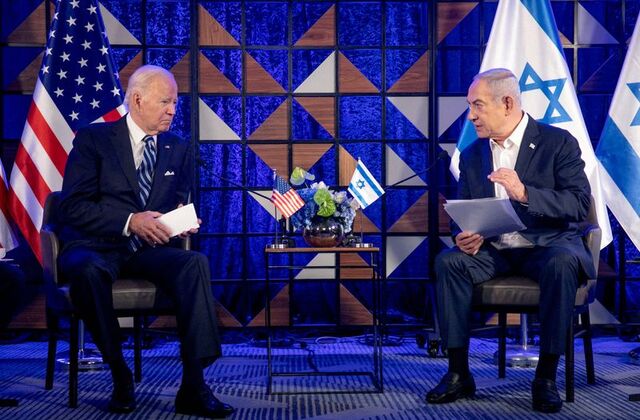Countdown for the end of Joe Biden’s presidency and the beginning of Donald Trump’s second term as US President has begun and Biden appears to be desperate. He, it seems, wants to leave behind some legacy to remember him by. His effort to bring the warring Israel and Hamas to the negotiation table for establishment of peace probably is his focus. With that end in view he has spoken to Israeli Prime Minister Benjamin Netanyahu about the ongoing talks for a ceasefire in Gaza and underscored the “immediate need” for a truce and the return of Israeli captives held in the Palestinian enclave. The call on 12 January came as Biden pushed for a deal to stop the fighting before Trump returns to the White House 20 January. The negotiations under the supervision of the US, Egypt and Qatar have, during the past one year, been repeatedly stalled yet US officials now express hope of sealing an agreement. The latest round is taking place in the Qatari capital, Doha, with the head of Israel’s Mossad foreign intelligence agency, David Barnea and Biden’s top Middle East adviser, Brett McGurk, attending the talks. The latter has reportedly been working on final details of a text to be presented to both sides as stated by Jake Sullivan, Biden’s national security adviser.
However, there is uncertainty over whether a deal can be reached by 20 January. Hope, desperation and a degree of uncertainty were palpable in Sullivan’s statement: “We are very, very close, yet being very close still means we are far because until you actually get across the finish line, we are not there.” The hint of the talks not finally producing the desired outcome is dropped considering the influence the Far-Right ally of Netanyahu has on the latter’s policy decision on amicable settlement of the decades-long conflict between Israel and Palestinians. However, Netanyahu is aware of his predicament in domestic politics for his failure to get all the Israeli captives released from Hamas which is why he has thanked Biden for his lifelong support of Israel, according to the White House readout. He has previously signalled that he is committed only to the first phase of the ceasefire agreement, which envisions the release of some captives in exchange for a weekslong halt in fighting. Hamas, however, has insisted on a full Israeli troop withdrawal from the largely devastated territory. Issues in the talks have included which captives would be released in the first part of a phased ceasefire deal and which Palestinian prisoners would be released in a quid pro quo backdrop and also the extent of any Israeli troop withdrawal from populated centres in Gaza. The talks are being held with Israel continuing its relentless bombardment of the Gaza Strip, particularly the north of the enclave, which has been subjected to a brutal siege for more than 100 days. Over 46,000 Palestinians, the majority of them being women and children, have so far been killed, while about 90 per cent of the territory’s population has been displaced from their homes. The war, which some UN experts describe as “genocide,” began in the aftermath of the Hamas-led attack on Israel 7 October, 2023, in which Palestinian fighters killed 1,200 people and took some 250 captives. There is, however, a ray of hope for durable peace this year when the UN is celebrating its 80th anniversary. This is the right time for the world body to be active but to establish the State of Palestine as the 194th UN member state seems a near impossibility. The upcoming UN Conference on Palestine, set for June 2025, can be important. The Trump administration has the golden opportunity to solve the vexed Middle East question for some time and push through a peace deal at the gathering in New York in June.
Despite the continuing conflict between Israel and Hamas-Houthis, a small window of hope has nonetheless emerged. Almost the entire world has veered round the two-state solution of Israel and Palestine as the key to regional peace. Israel is also facing international isolation. The International Court of Justice is hearing a genocide case against Israel and the International Criminal Court has issued arrest warrants against Netanyahu and former Defence Minister Yoav Gallant. Rights organisations, including Amnesty International, are accusing Israel of genocide. Meanwhile, Netanyahu seems unperturbed and some say it is high time that his allies in the West make him see reason for the benefit of all in the region and beyond.

